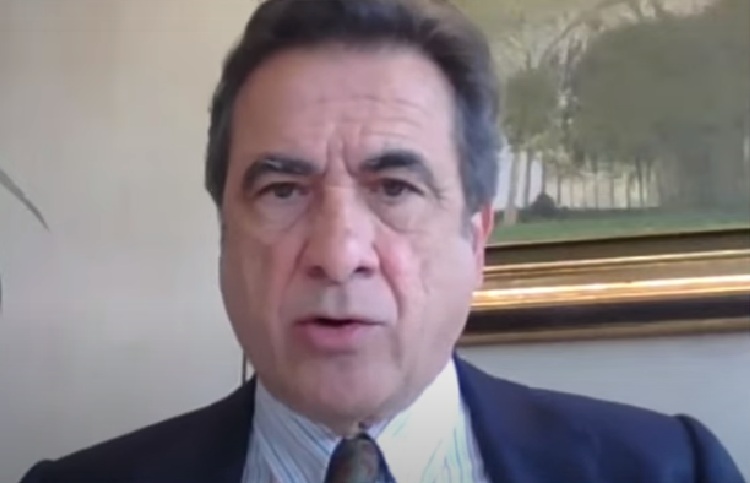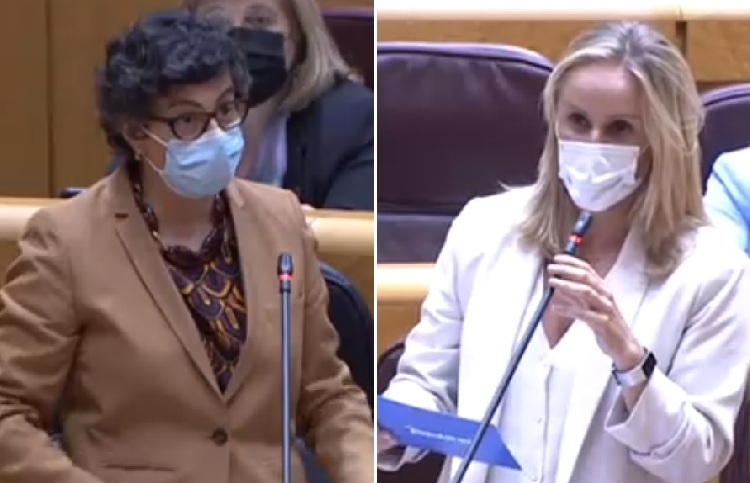Eduardo González
The director general of Foreign and Security Policy of the Ministry of Foreign Affairs, Fidel Sendagorta, urged yesterday to avoid the “undesirable black and white vision of a new cold war” between Beijing and Washngton and warned that Europe cannot “have human rights as its only agenda with China” and needs to seek “a positive agenda” with the Asian giant on matters of shared interest.
“China has gone from an empire closed in on itself and its neighborhood, and whose influence did not reach Europe, to a global power whose influence reaches everywhere and maintains friction with Europe in areas of interest to Spain, such as Latin America and Africa,” said Sendagorta during the videoconference presentation of the report Spain and the strategic rivalry between China and the United States, prepared by the Elcano Royal Institute. The event was presented and moderated by José Juan Ruiz, president of the Think Tank.
In these circumstances, he continued, “we are moving towards a much more complex policy with China that responds to multiple factors” and, therefore, “the black and white vision of a new cold war is undesirable”. Both for Spain and for Europe as a whole it is necessary to “accept complexity as a new framework for relations with China” and seek “a positive agenda with China” based on “cooperation on issues such as climate change, non-proliferation or some regional conflict”, Sendagorta warned.
In the director general’s opinion, Europe must continue to insist on the defense of its own values in its relations with China, especially with regard to human rights, which “are part of the common identity of the countries and of the Union and we cannot leave them aside,” as was demonstrated by the sanctions regime recently approved by the EU for human rights violations in Xinjiang.
However, he warned, “we cannot have human rights as our only agenda with China”. “If we want to create spaces of cooperation to, for example, strengthen the World Trade Organization or other important institutions, we will have to work with like-minded countries and with non-like-minded countries and create spaces of understanding beyond these values in which we are never going to meet”, he added.
Likewise, he continued, Spain’s relations with China, although they must inevitably adjust to the double transatlantic and European frame of reference, also have an important “bilateral margin” in issues such as bilateral investments, investment presence in Latin America or the areas of knowledge and connectivity and even technology, in which Spain must act within the EU but “not uncritically, looking beyond the interests of France and Germany”.
Elena Pisonero and Mario Esteban
At the same event, Elena Pisonero, president of Taldig, founder of Relathia and former Secretary of State for Economy, Energy and Small and Medium Enterprises, warned that “in this scenario of rivalry between the US and China, the EU will increasingly be asked to position itself” and for this it is preferable “a stronger Europe that selects the areas in which it can really have a stronger position against the G-2 (China and the US), such as Latin America”.
“It is not something we can leave for later, it is up to us to turn that threat into an opportunity, but we are not going to be able to do it alone governments or companies, we must maintain collaboration to make decisions, because we will not always be able to choose what we güiste,” he continued. “China used to be closed in on itself and Europe cannot fall into that mistake, because today’s world is less stable and more dangerous”, she added.
The author of the report, Mario Esteban, senior researcher at the Elcano Royal Institute, regretted that Spain, “as a country”, has not yet become aware “of the relevance and urgency of this rivalry between the US and China”, which is “the great geostrategic event of our time” and which “affects the current international order” and leads to “the erosion of multilateralism and the capabilities of the international community to face common challenges”.
Faced with this “bipolarization”, said the researcher, the EU must maintain a cohesive position among its Member States and, although “there must be no equidistance, because in terms of values we are much closer to the United States than to China and the forecasts are that this will continue to be the case, we must avoid fratricidal dynamics and seek a certain flexibility” with Beijing. “The reinforcement framework has to be European, but also assuming the national framework”, he explained. “Spain is part of the European response, but it is also among the countries most reluctant to engage in security confrontation with China”, unlike France, which “is closer to the United States”, he added.







